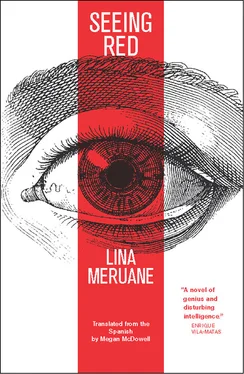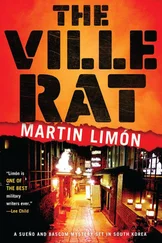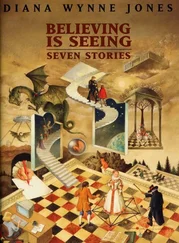miles away
The irritating sound of the phone rang out at all hours in that house of doctors and patients. It rang during the day like nighttime alarms; it rang because my mother wasn’t there, or because she was, but was taking a nap before leaving again to attend patients at her private practice, and in any case the phone could just go on ringing because my mother was a little deaf in one ear and Olga, completely. I pressed headphones over my ears, trying to focus on another drama about a suicidal heroine that went on turning uselessly in the cassette player while I debated whether to move on to the next novel. It rang and rang, but answering always entailed a risk. The risk that at the other end was a patient pleading desperately for help without stopping to wonder who he was asking. My father’s patients were old men, decrepit but still strong enough to insist on spelling out their newest symptoms for me, the list of medicines prescribed, tests and their results, clinical histories. They were slavering old folks, they wouldn’t stand for interruptions, they wielded their ellipses with sly intelligence. They weren’t familiar with the full stop. What did they care that the doctor wasn’t there, that I wasn’t a secretary but only a daughter — a reluctant one, at that — and this wasn’t the office but rather his private home? What they wanted was to smear someone with their dread of the imminent death creeping up on their heels. Other times through the receiver I heard the voices of the mothers of my mother’s patients, and these also refused to stop and listen to my explanations, and insisted on asking, their hearts shattered or deeply grooved — asking themselves more than anyone else — what to do, my god what do I do, my daughter swallowed a bottle of pills, the snails in the garden, the potato peelings, she’s ingested the paraffin from the heater in large, suicidal swallows. And then it was my turn to ask them questions: what were they doing on the phone with me and not in the emergency room? Hang up and run to the stomach pump. Not only was the telephone my parents’, the calls were also for them. Only every once in a while did it ring for me, first the voice from a call shop establishing the connection, then Ignacio’s voice from Buenos Aires, then my voice saying but no, no, you’re breaking our agreement, didn’t we say we weren’t going to talk? Don’t call me again. And then we would be quiet but we wouldn’t hang up, Ignacio and I, punished by a strictly voluntary agreement. You’re right, Ignacio would say, aggrieved, but I wanted to hear your voice, to know you were alive in the enigma of Chile. I’m alive, barely, but I’m alive, but we’ll talk about what we’ve been thinking when we see each other again. I finally cut the conversation off, and when we hung up I wanted to cut my wrists a little, but I turned instead to my novel. The phone rang again. It rang and rang but no one answered. I was having a hard time finding where I’d left the handset, fumbling along the surface of the bedside table, bumping my long nails into the bottom of a lamp and meeting indiscernible obstacles until finally I found the phone. It had stopped ringing but I picked it up anyway, driven by the hunch it was Ignacio again, defeated by the anxiety that I myself was causing him, cruelly. I heard a Spanish accent, but it wasn’t his. It was sprinkled with h sounds and strident s ’s and with z ’s so unmistakably madrileño. A rougher accent, much more emphatic than Ignacio’s Galician, and it crossed through time and its turbulences. It was Raquel’s hard voice talking to my mother’s despondent one, trying to console her convincingly. With resigned patience. I’m sure, Raquel was saying, the operations are going to work. My mother stayed quiet for a moment, as if she couldn’t breathe or it hurt her enormously. She gulped down air and dampened it inside her lungs, preparing her answer with the coldness she used when talking about the hopeless. Without seeing what was coming, Raquel repeated her candid señora, I’m sure, whatever happens she’s going to be fine. Fine, I repeated to myself, overwhelmed by her certainty, unable to interrupt them. I let myself be carried along by those voices I knew so well but that were soon to become unrecognizable to each other. My mother let out an asthmatic whistle and said to her. You, what do you know? Are you an eye specialist? In the pause that followed I saw Raquel’s disconcerted gesture, her immediate annoyance; I saw rocks falling from the ceiling onto her skirt. I thought about Raquel breaking her nails in that cave-in my mother had provoked. No ma’am, she replied then, drily, raising her voice just enough, I’m no specialist, I’m only a poet. And it’s poetry that makes me sure. I heard the indecipherable stuttering of one of them, Raquel or my mother, or maybe what I heard was another conversation getting mixed up in the wires. Raquel? I said, because the conversation between them had died. Raquel, hi, what a surprise to hear from you.
militancy
Even now, even here, in this very passage, I confess it was not difficult to stop writing. It was much more arduous to find a pen, wrap my fingers around it, know that crooked words unreadable even by Ignacio were falling onto the page. Because as the world went black, everything that belonged to it was also left in the dark. Now there were voices that completed the unseen or that read to me tirelessly. I could fast forward or rewind them, interrupt them. Listening to borrowed novels suspended the anguish of not being able to write, it kept me from stopping to think about what I wasn’t writing, about what I would never write. But now Raquel was on the phone, like a friend, like the militant poet she was, supplied with pens and notebooks to write down dark verses in microscopic script. Raquel called me to order. What had I done with my unfinished novel? my general asked me. It must be thrown in with all my notes in some box from the move. While she waited, my mind went searching for the exact box in which I’d deposited the unfinished manuscript, the box that my hands had sealed like a coffin. I’d left the book half-finished and had no time frame to complete it. Raquel assailed me: at what point had I left off writing, how much more before I’d finish, and I couldn’t remember. My memory was another blackout. It’s impossible you’ve forgotten, she said, and I said nothing. You can’t give up, she insisted, and I: it’s not giving up, it’s an interruption, a temporary impossibility. Did you forget yourself, too? Raquel hammered away, trying to activate my memory or my wish to remember. To remember not the forgotten pages, but the identity my blood had drowned. You can only be yourself when you’re writing, said Raquel, as if she had to remind me, but I shot back — because this was a war and I needed to win a battle: maybe I wouldn’t be Lina anymore, maybe I was backing up toward the abyss. Maybe I’d have to start all over again. Of course not, raged Raquel. Of course I will, I barked at her, consumed by an anger that did nothing but confirm she was right. I didn’t want to start all over, I couldn’t be someone else now, much less someone who was not a writer. It was just that paper and screens were now a disadvantage. The smooth keys that had been erasing my fingerprints for years were now an enigma. I couldn’t even be sure it would be easy to go back to writing the same way once I was me again, if that ever happened. That novel is dead, I declared, and Raquel negotiated a maybe, maybe that novel is dead but there will be others. Because you don’t write, she said, with just your eyes and hands. So, for now, she added, as if giving her final order: right now, as soon as we hang up, start writing in your head.
Читать дальше












